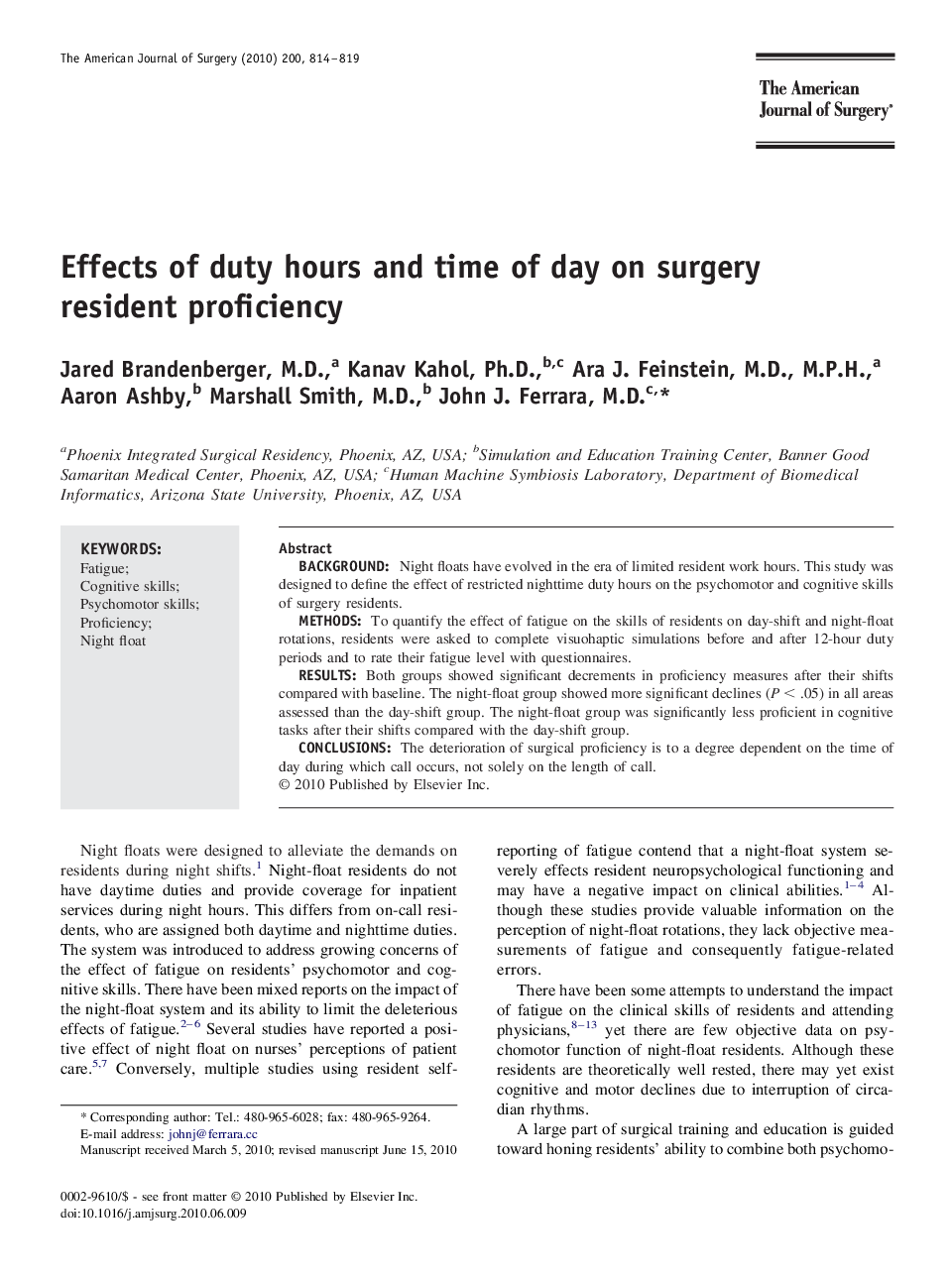| Article ID | Journal | Published Year | Pages | File Type |
|---|---|---|---|---|
| 4279932 | The American Journal of Surgery | 2010 | 6 Pages |
BackgroundNight floats have evolved in the era of limited resident work hours. This study was designed to define the effect of restricted nighttime duty hours on the psychomotor and cognitive skills of surgery residents.MethodsTo quantify the effect of fatigue on the skills of residents on day-shift and night-float rotations, residents were asked to complete visuohaptic simulations before and after 12-hour duty periods and to rate their fatigue level with questionnaires.ResultsBoth groups showed significant decrements in proficiency measures after their shifts compared with baseline. The night-float group showed more significant declines (P < .05) in all areas assessed than the day-shift group. The night-float group was significantly less proficient in cognitive tasks after their shifts compared with the day-shift group.ConclusionsThe deterioration of surgical proficiency is to a degree dependent on the time of day during which call occurs, not solely on the length of call.
